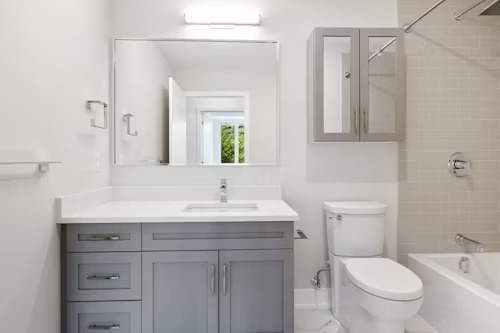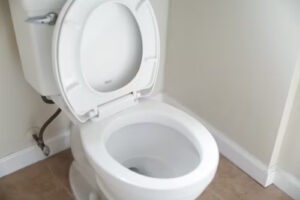Bathroom stuff isn’t usually what we chat about over dinner. But sometimes, what we see in the toilet can be worrying. One thing that might catch your eye is poop that floats, and sometimes even spotting what could be gallstones. It might seem scary, but knowing what it is can help you feel more in control. So, let’s talk about floating gallstones in toilet. We’ll sort out what’s true and what’s not, and figure out how to get the right help.
Can Gallstones Floating in Toilet?
Simply put, gallstones don’t typically float directly in the toilet. They form in your gallbladder, which is like a small pouch near your liver. These tiny stones are made of hardened cholesterol and can really hurt if they block a tube called the bile duct.
But even though gallstones don’t float by themselves, they can affect what you see when you go to the bathroom. Here’s how:
- Fatty Poop: When a gallstone blocks the flow of bile, a fluid made by your liver to help digest fats, your body can’t break down fats properly. This can make your poop have more fat in it, causing it to float because of trapped gas bubbles.
- Chronic Pancreatitis: Sometimes, gallstones can move and get stuck in the bile duct, causing your pancreas to get inflamed (pancreatitis). Chronic pancreatitis can make it hard for your body to absorb nutrients from food, which can also make your poop floaty.
Here’s a table addressing whether gallstones can float in the toilet:
| Scenario | Possibility of Gallstones Floating | Explanation |
| Passing Gallstones Naturally | Rare and unlikely | Gallstones are typically passed in small sizes or remain in the gallbladder. They are dense and may sink rather than float. |
| After Gallbladder Surgery | Unlikely | After surgery, gallstones are removed, not passed naturally. Residual stones may be passed but are usually small and dense, likely sinking. |
| With High Fat Content in Stool | Possible under rare conditions | If the stool has a high fat content due to a digestive issue, it could float. In rare cases, small gallstone fragments might float along with fatty stool. |
| Related: What Do Gallstones Look Like in the Toilet |
Causes of Floating Gallstones in Toilet
The floating of gallstones in toilet is typically due to their composition and the bile they’re surrounded by. Here’s why gallstones might float:
- High Fat Content: Gallstones with more fat are likelier to float. Fats are less dense than water, so if the stones have lots of lipids, they’ll float.
- Bile Composition: Certain substances in bile, like bile acids and lecithin, can affect gallstone density. If the bile around the stones is less dense, they may float.
- Gas Bubbles: Sometimes, gas from bacteria in the intestines can get trapped in or around gallstones, making them float.
Signs to Keep an Eye On
Even though seeing a gallstone might be a sign, sometimes they don’t cause any symptoms. But if you have any of these problems, it’s crucial to see a doctor:
- Sharp pain in the upper right part of your belly or between your shoulder blades that comes on suddenly and is really bad.
- Having the want to throw up as well as actually doing so.
- Trouble digesting food.
- Having a fever and feeling really cold.
- Peeing dark urine or having poop that’s light-colored like clay.
Treatment Options for Floating Gallstones in Toilet
The good news is that passing one gallstone usually doesn’t mean you need treatment right away. But if you have lots of stones or keep feeling pain, your doctor might suggest:
- Cholecystectomy: This is when they take out your gallbladder with surgery. It’s the most common treatment.
- ERCP (Endoscopic retrograde cholangiopancreatography): This is a small procedure where they use a scope to take out stones stuck in your bile duct.
- Dissolution therapy: Sometimes, they use medicine to try to dissolve cholesterol-based gallstones. But it’s not used very often because it doesn’t always work well.
Preventing Floating Gallstones in Toilet
There’s no surefire way to stop gallstones, but you can lower your chances by:
- Keeping a healthy weight: Being overweight raises your risk.
- Eating right: Cut back on fatty foods and cholesterol, and eat more fruits, veggies, and whole grains.
- Exercising often: Try to get at least 30 minutes of moderate exercise most days.
- Avoiding quick weight loss: Losing weight too fast can up your chances of getting gallstones. Aim for a slow, steady weight loss instead.
| Preventive Measure | Reason | Explanation |
| Maintain a Healthy Diet | Reduces fat content in stool | A balanced diet low in saturated fats can prevent excessive fat in the stool, which might otherwise cause it to float along with small gallstone fragments. |
| Proper Gallbladder Function | Ensures bile is effectively processed | Regular meals and avoiding fasting can keep bile production steady, reducing the risk of gallstone formation and ensuring that the bile processes fats efficiently. |
| Regular Medical Check-ups | Monitors gallbladder health and detects issues early | Regular ultrasounds and consultations can help detect gallstones early, allowing for timely intervention before they cause any symptoms or complications. |
Lifestyle and Dietary Changes
While surgery is a surefire solution, making certain lifestyle and dietary tweaks can help manage symptoms and lower the risk of gallstones. Here’s how:
- Maintain a Healthy Weight: Being overweight increases gallstone risk, so stick to a healthy weight through diet and exercise.
- Eat Balanced Meals: Load up on fiber, fruits, veggies, and healthy fats (like those in fish and nuts). Steer clear of high-fat and high-cholesterol foods.
- Stay Hydrated: Drink lots of water to keep bile at the right consistency and lower the risk of stone formation.
- Stay Active: Regular exercise can help prevent gallstones and boost overall digestive health.
| Change | Purpose | Implementation Tips |
| Increase Fiber Intake | Promotes digestive health and reduces cholesterol | Include whole grains, fruits, and vegetables in daily meals. Aim for 25-30 grams of fiber per day. |
| Regular Physical Activity | Helps maintain a healthy weight and improves metabolism | Incorporate at least 30 minutes of moderate exercise, like walking or cycling, most days of the week. |
| Limit Saturated Fats | Reduces risk of heart disease and gallstone formation | Choose lean meats, plant-based oils, and low-fat dairy products. Avoid fried and processed foods. |
When to Seek Medical Attention
Even though floaty poop usually isn’t a big deal, there are times when you should talk to a doctor:
- If your poop keeps floating for several days in a row, it might mean something else is going on.
- If you have other problems like pain in the upper right part of your belly, feeling sick, throwing up,
- having a fever, or your bathroom habits change and your poop still floats, it’s time to see a doctor.
- If you see blood in your poop, don’t wait. Get medical help right away.
Conclusion
Seeing stuff floating gallstones in toilet can be surprising, but it doesn’t always mean you have gallstones. It’s often because of what you eat or a small tummy problem. But if you keep seeing floaty poop or have other worrying symptoms, it’s better to see a doctor. They can check things out and make sure your stomach is okay.


